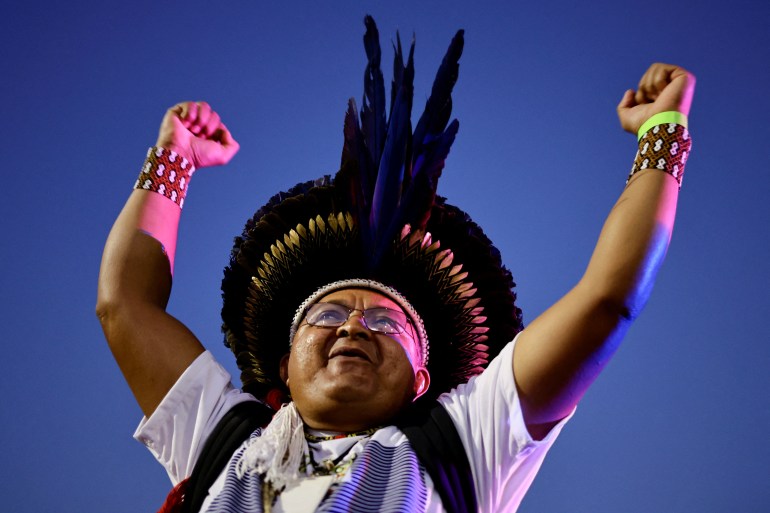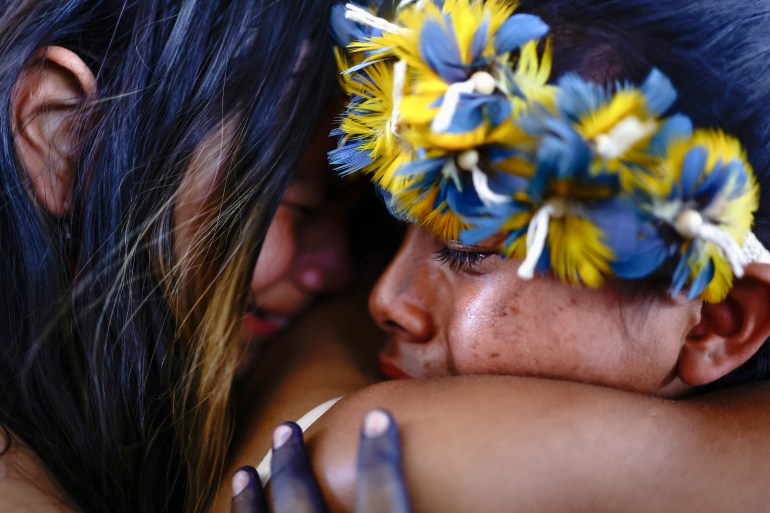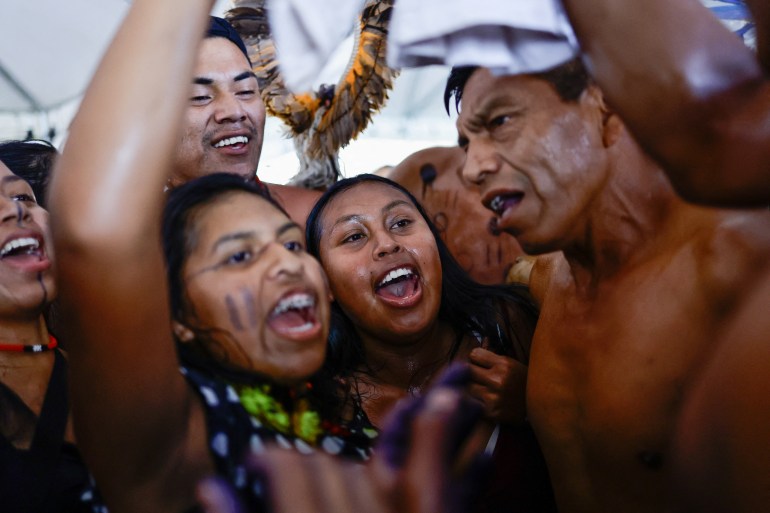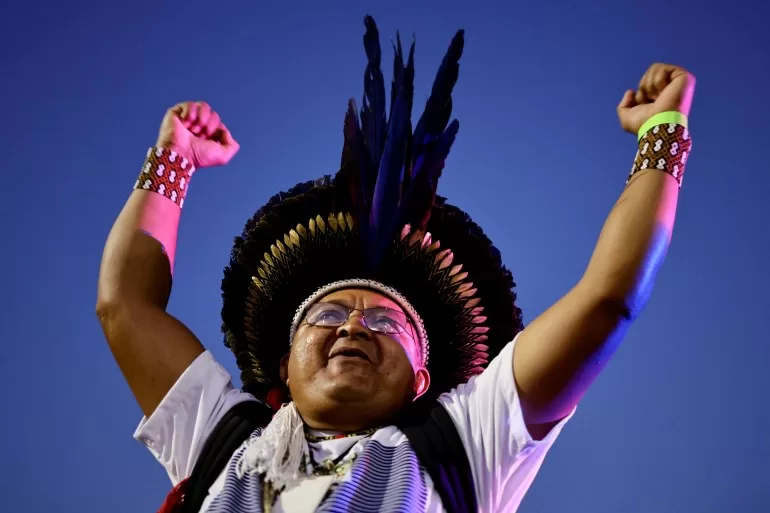The court’s decision will weigh heavily as Brazil’s Senate considers legislation to limit new Indigenous reservations.
Brazil’s Supreme Court has ruled in favour of Indigenous rights in a landmark case that weighed the constitutionality of establishing a time limit for making claims to ancestral territory.
Nine of the court’s 11 justices voted to strike down what is called the “marco temporal” or “time frame” argument, a legal policy supported by businesses and farmers seeking to use Indigenous land.
The “marco temporal” would have forced Indigenous groups to prove they were on the land in question in 1988, when Brazil’s current constitution was ratified, in order to assert a right to the territory.

But that argument faced widespread criticism from Indigenous peoples, human rights organisations and even experts at the United Nations, who argued it could “legalise theft of Indigenous lands”.
Thursday’s Supreme Court decision was heralded as a victory for those groups, some of which took to social media to celebrate.
“Momentous victory after years of struggle!” the human rights group Survival International wrote on the platform X.
“The Indigenous peoples of Brazil and their allies around the world are celebrating a historic victory: the genocidal and catastrophic Time Limit Trick has been rejected by the Supreme Court!”

The activist Celia Xakriaba, a member of the Xakriaba people in Brazil, likewise expressed her joy in the aftermath of the ruling.
“A majority formed and the ‘marco temporal’ buried!” Xakriaba wrote. “Victory for Indigenous peoples!”
“Even Gilmar Mendes understood that we need to guarantee our rights,” she added, referencing a Supreme Court justice known for controversy.
Mendes had previously justified a cut-off date for Indigenous land claims as a means of avoiding endless debate over territory. But he ultimately voted with the majority in Thursday’s ruling.
The court’s decision will weigh heavily on the future of Brazil’s Bill 490, a piece of legislation that seeks to limit new Indigenous reservations, with support from the agriculture lobby.
On May 30, the lower house of Congress approved the bill overwhelmingly, by a vote of 283 to 155, prompting protests including a highway blockade.
The bill now faces Brazil’s Senate, with a vote expected next week. Already, the agricultural caucus in Congress has bashed the Supreme Court’s decision and announced it would proceed with pushing Bill 490 to passage.
“We want legal security for rural producers. The Supreme Court is fomenting barbarism in the countryside, total legal uncertainty,” the caucus said in a statement.

Brazil is home to 1.6 million Indigenous people, according to its latest census, and ancestral lands form an essential part of their culture and livelihood.
But, as the Supreme Court majority explained in their ruling, many Indigenous people had been — and continue to be — violently displaced from their territory by settlers and business interests.
The case stemmed from one such displacement in the state of Santa Catarina. Pushed out by tobacco farmers, members of the Xokleng people appealed to the state government for help reclaiming their land. The state government had refused them, on the basis that they were not there in 1988.
